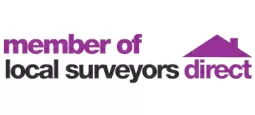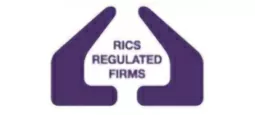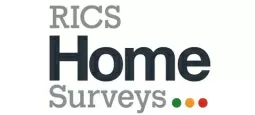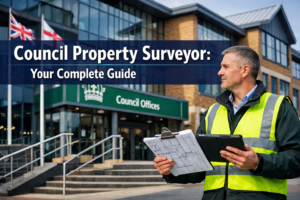
Collective Enfranchisement
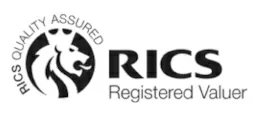
What is Probate?
To obtain collective enfranchisement for your building in Manchester means that you and your neighbours will now be in charge as the equivalent of a freeholder, granting you almost total control over the building’s operations. This arrangement places considerable control in your hands, compared to the control that an un-elected Professional Leasehold Managing Agent would have and compared to the lack of control that normal leaseholders have.
Valuers of freehold properties in Manchester and the Home Counties
Under the Leasehold Reform, Housing and Urban Development Act 1993 (as amended), groups of leaseholders have the right to purchase the freehold of a block of flats, provided that they meet certain qualifying criteria.
Increasingly, Leasehold owners are favouring the collective enfranchisement route and are seeing the benefits of owning a piece of the freehold. Some legal and professional advice is essential if you are going to purchase the freehold and work your way through the litigious process.
Are you interested in obtaining the freehold for your block of flats in Manchester?
They can help by giving you advice on the process of enfranchisement so that you and your fellow leaseholders might buy the property on which you live as a freehold. Enfranchisement is a complicated thing to understand, but in essence, it allows the leaseholder to purchase the freehold or to extend the lease.
The process of enfranchisement in Manchester is quite intricate, and it is best undertaken with the help of an expert. Why would one want to own the freehold? In the case of leaseholders in a block of flats, there might be some very good reasons to consider getting together and acquiring the freehold of their building—some that have to do with money, some that have to do with power, and some that have to do with human rights.
Advantages come from purchasing the freehold?
Collective enfranchisement is what residents in a block of flats can opt for if they don’t want a lease extension. It means they have purchased the freehold. Extending the leases of individuals in the block can then be agreed at no extra cost to them, and waiving the ground rent commonly improves both the value of the individual flats and the ease with which they can be sold. Some of the advantages are:
- Longer lease: instead of negotiating leasehold extensions with individual residents, a group of residents can band together and simply buy the freehold. That way, everyone has a longer lease. The group can also agree not to charge themselves ground rent, which ought to bring the value of their homes up to market levels.
- Management Control: owning a freehold property means that you own the land and the building with others, which gives you a more significant say in the running of the property. You can either self-manage or select your managing agent and contractors.
- Cost savings: when you hold a share of the freehold, you will pay less per person for maintenance and repairs. This is because you can achieve much better value when you manage and maintain the whole building.
Requirements for freehold enfranchisement eligibility
Every business, regardless of its size or type, must have some arrangement for control of management. The freeholder also has certain rights over the land and building that are quite important in this regard. For instance, the freeholder can determine, within reason, how the property is used. The freeholder can also select the management company that will maintain the building and the grounds around it, together with certain other contractors. In fact, the freehold arrangement is advantageous to those who use it because it allows them a maximum of control over their environment; it is also beneficial to those who live and work in close proximity to the property because it minimizes the numbing effect of a long hierarchy of managers. The eligibility criteria includes:
- at least 2 to 3 self-contained flats must be owned by qualifying tenants (with 21-year-plus leases).
- maximum 3 leasehold properties owned.
- “residential” space must make up at least 75% of the building.
- at least 50% of the property owners (freeholders and leaseholders) must agree to the conversion.
- the person applying for the conversion must not live in any of the flats as a freeholder.
How to Purchase a Freehold
The process begins with the leaseholders forming a company, which is called the nominee purchaser, of which they are all members. They then nominate a purchaser. The leaseholders give notice pursuant to the Leasehold Reform, Housing and Urban Development Act 1993. In the initial Notice, they set out certain prescribed information about themselves and the building, the price they are offering for the freehold, and the independent surveyor they’ve engaged, who has advises them about the price they should offer. The freeholder then has 2 months to respond.
The freeholder serves a counter-notice. They must inform the leaseholders whether they accept the request to buy the freehold and, if they do, on what terms. They give a price in the counter-notice only if they choose to accept the request and want to be helpful. If the freeholder fails to serve a counter-notice or serves a late counter-notice, the leaseholders’ right to buy the freehold on the terms in the initial notice is automatic. These steps can be followed in that case:
- Verify that you meet the eligibility requirements for purchasing the freehold.
- Organise and create a company for the leaseholders who qualify.
- Designate a nominee purchaser.
- Engage the services of a solicitor and a surveyor.
- Obtain expert advice and a freehold valuation for the purchase.
- Deliver the Initial Notice to the freeholder.
What is the cost of a share in freehold?
Several factors mainly influence the price that those owning a building will have to pay to gain freehold control. These include the current value of all the flats in the building and the number of years remaining on each flat’s lease. The Leasehold Reform, Housing and Urban Development Act 1993 includes several formulae that can be used by would-be freeholders to arrive at an indicative price.
You also have to be aware that the price may well be substantially higher if the flat or apartments that you are purchasing have leases that have fewer than 80 years to run. After that, you should simply know that the purchase price may well be a lot higher if the purchase involves a building with parking, especially if the parking is underground.

Surveys of Commercial Property
If you’re thinking of acquiring, leasing, subletting, disposing of, or altering commercial premises in Manchester, you would be well advised to locate a surveyor skilled in the nuances of commercial building surveying – should you spot a defect in a commercial building you can use that information to negotiate an asking price for the property that’s considerably lower than what the seller originally wanted, or you can talk your way out of a bad deal altogether.
Our Manchester-based team of RICS-compliant commercial building surveyors is equipped to handle matters throughout Manchester.
Contact
Our team prioritizes client care above all else. We look forward to being in touch with you so you can instruct a surveyor in Manchester, London, Bristol, Birmingham or Cardiff. You can reach out to us easily. Just fill out our form, and we’ll get back to you with a free quote for your survey. All our surveyors are qualified as members of the Royal Institution of Chartered Surveyors (RICS) and we are one of the UK’s leading providers of building survey and valuation services:
- Accredited Professionals: Certified by organizations like RICS, CIOB, and RPSA.
- Customized Survey Reports: inspections to meet your specific requirements.
- Local Expertise: Deep understanding and specialized knowledge.
- Expert Guidance: Professional recommendations and support.
The property survey you commission will be carried out by an accredited professional. Your chartered surveyor will be a member of the Royal Institution of Chartered Surveyors (RICS) or the Chartered Institute of Building (CIOB), or will belong to some other industry-standard professional body. Rest assured; you will receive highest quality of professional service for your survey.





